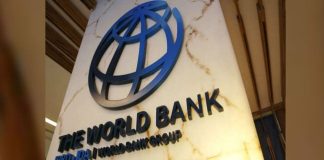Credit penetration in Nigeria has increased to 14%, largely driven by the efforts of CRC Credit Bureau Limited, the country’s leading credit bureau company. Despite this growth, the penetration level remains lower than the global average.
Dr. Tunde Popoola, Group Managing Director/CEO of CRC Credit Bureau Limited, highlighted this development during the CRC Finance and Credit Conference 2024 in Lagos on Wednesday. He noted that Nigeria has made significant strides in credit penetration over the last 15 years.
The conference, themed “Sustainable Financing Options: Innovations in Credit Risk Management,” also marked CRC Credit Bureau’s 15th anniversary. Popoola emphasized the need for continued efforts to increase credit access, as currently, only 33 million Nigerians have credit scores recorded in CRC’s database.
“33 million Nigerians have credit scores. In 2023, 29.4 million searches were conducted, and over 10 million searches have already been conducted in Q1, 2024. CRC has expanded from one product in 2010 to 18, covering all aspects of lending,” Popoola stated.
He acknowledged the progress made in collaboration with regulators, particularly the Central Bank of Nigeria (CBN), despite challenges in easing access to credit. “Today, many Nigerians can obtain loans on their phones, with lenders relying on CRC. The Credit Reporting Act signed in 2017 under President Buhari’s administration, along with CBN support, has significantly boosted credit penetration,” he added.
Reflecting on CRC’s journey, Popoola recounted, “Fifteen years ago, we received a licence from the CBN. In January 2010, CRC was launched with the mission to facilitate access to credit in Nigeria. While we started with a credit report product, we have since expanded our offerings, though adoption by some banks and organizations remains limited.”
Joel Owoade, Chairman of CRC’s Board of Directors, discussed the impact of economic fluctuations on Nigerian companies, noting significant losses reported up until Q1, 2024. He proposed sustainable financing as a solution to economic challenges, emphasizing the importance of risk management to mitigate bad loans for banks.
Olaniyi Yusuf, Managing Partner of Verraki, spoke on “Artificial Intelligence Paradox: From Solution to Risk,” highlighting global inequality as a primary concern in the AI-driven fourth industrial revolution. He argued that AI could generate more jobs rather than cause net job losses, stressing the need for regulatory frameworks that support AI development without stifling innovation.
Dr. Adetona Adedeji, Acting Director of the Banking Supervision Department at CBN, acknowledged that at 14% credit penetration, Nigeria’s economy still has a long way to go. “It’s not just about granting credit; it must be sustainable and revolving to support the economy,” he said.
Representing Adedeji, Olubunmi Ayodele-Oni, Assistant Director of the Banking Supervision Department at CBN, outlined measures taken by the CBN to promote sustainable credit, including mandating other financial institutions to provide credit reports and establishing the National Collateral Registry and Global Standing Instruction.
“A good credit score can help borrowers access lower interest rates. Lenders get a global picture of the borrower before the transaction,” Ayodele-Oni concluded.













